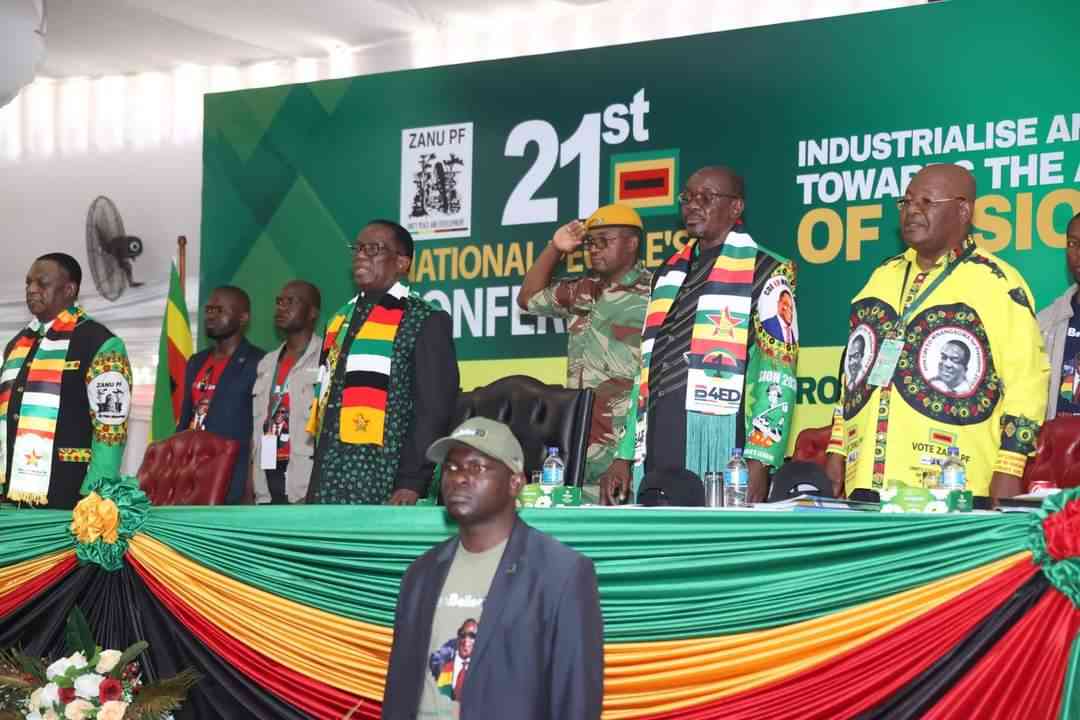
ZIMBABWE is slowly engrossed with the Zanu PF people’s conference in Bulawayo, oblivious to developments in our eastern neighbour, Mozambique, and the ongoing BRICS meeting in Russia that could change world politics and economics.
The Zanu PF conference started on Tuesday in Harare with the sitting of the politburo that was followed immediately by the central committee meeting at the party headquarters the next day.
Media reports highlighted what Zanu PF first secretary and leader, President Emmerson Mnangagwa said to the party organs.
Mnangagwa congratulated Mozambique’s Frelimo party on its victory ahead of the official announcement of the election results.
Probably, he knew something as Sadc chairman.
Mnangagwa also told party members that they should respect the party and national Constitution and that the conference resolutions should be implemented by the government.
There are a few lessons that can be drawn from the two speeches.
The first and foremost is that Zanu PF as a fellow regional revolutionary party will stand with its peers, despite concerns about the electoral processes.
- ED’s influence will take generations to erase
- ‘Govt spineless on wetland land barons’
- Govt under attack over banks lending ban
- Zim Constitution must be amended
Keep Reading
These bodies are all about fraternity, nothing about being factual (honest) and equality.
The respect of the constitutions proves the deep, underlying factional issues in the party about the internal debates on extending Mnangagwa’s term in office.
Mnangagwa could be displaying the character of the double headed Janus.
It is difficult to reconcile his constitutionalist principles and his avowed public stance on the “voice of the people is the voice of God”.
Is it a Damascene moment for him or is playing for time?
The jury is still out on that.
Finally, on conference resolutions, Mnangagwa after leading six conferences and a congress, it has just dawned on him that the party’s statutory meetings are mere talk-shops.
There is some irony in this.
Mnangagwa more frequently than not goes on to do the opposite of his public pronouncements.
He spoke about eliminating corruption, changing work ethic in public service and leading a clean and efficient government.
It is unfortunate that in all those three spheres, Mnangagwa has dismally failed by any standard.
Mnangagwa, therefore, reinforces the old adage the more things change, the more they remain the same.
One more thought on developments in Mozambique. Political instability in Mozambique always hit Zimbabwe hard.
We have a fuel pipeline from Beira to Mutare and from there, the pipeline comes all the way to Harare.
It should also be remembered, the shortest route to the sea for Zimbabwe exports is through the port of Beira.
So, any political disturbances in Mozambique impact Zimbabwe negatively, particularly economically.
Let us now turn to BRICS.
BRICS is the abbreviation for Brazil, Russia, India, China and South Africa.
The grouping has since been joined by Egypt, Ethiopia, Iran and United Arab Emirates after they were formally admitted as new members of the bloc at its last meeting.
This is a grouping of developing countries dissatisfied by the global financial architecture and increased unipolar nature of global politics.
They have chosen a new path, bringing together a new bloc that challenges the United States hegemony at the Bretton Woods institutions and at United Nations levels.
Among the BRICS, they have more than half of the world population and a significant chuck of the world GDP [gross domestic product], thus making it a significant world player by any objective standard.
South African President Cyril Ramaphosa in his opening address to BRICS said: “We meet at a time when multilateralism is under threat. We see this 16th BRICS Summit as an opportunity to harness our collective strength to build a safer, more prosperous and equitable world.
“It is in this spirit that South Africa will assume the Presidency of the G20 next year under the theme of Solidarity, Equality and Sustainable Development.”
This was a bold statement from the leader of the biggest and most diversified economy in Sub Saharan Africa.
At the same meeting, Russian President Vladmir Putin echoed similar sentiments and laid down the rules.
Said Putin: “We have sought to strengthen the group’s influence, enhance its role in global affairs and in addressing pressing global and regional problems.
“We have done everything possible to deepen multifaceted cooperation between our states in three broad areas: politics and security, economy and finance, and cultural and humanitarian contacts.”
Putin further stated that expanding Brics membership would be on the standards set by the founding members and that over 30 countries have expressed such intentions.
Putin said: “It is crucial to maintain balance and ensure that the effectiveness of BRICS mechanisms is not diminished.
“In Johannesburg, we agreed to develop modalities for a new category of partner states and to draw up a list of countries eligible for this status.”
Mnangagwa and the public media had in the past expressed the interest to join BRICS.
It is a long shot by any measurement considering the sheer size and influence of the founding members.
The smallest economy in the group has a GDP of over US$100 billion and in terms of population, all members have populations above 50 million people.
On the face of it, China, Russia and Iran are under one form of sanctions or another by the United States, but they don’t keep whining or moaning about them.
They work diligently and increase their production and have sort of predictable economies with controlled inflation, therefore, affording their citizens a decent form of life on average.
Mnangagwa loves playing the big men’s games like his utterances on joining BRICS.
It is clear from Putin that Zimbabwe is still far from joining this grouping, making Mnangagwa a dwarf in a giant’s robe.
It has been proven again and again, that the second republic talks big, but it delivers little, just like William Shakespeare’s famous line “full of sound and fury but signifying nothing”.
The sooner Zimbabwe leadership realised that its actions should speak louder than its statements, the better.
The sooner it has its priorities about development in order the better.
And finally, the drama of seeing the world as a stage should stop and leaders have to deliver and offer less excuses or else they will be remembered harshly by posterity.
- Paidamoyo Muzulu is a journalist based in Harare. He writes here in his personal capacity.









